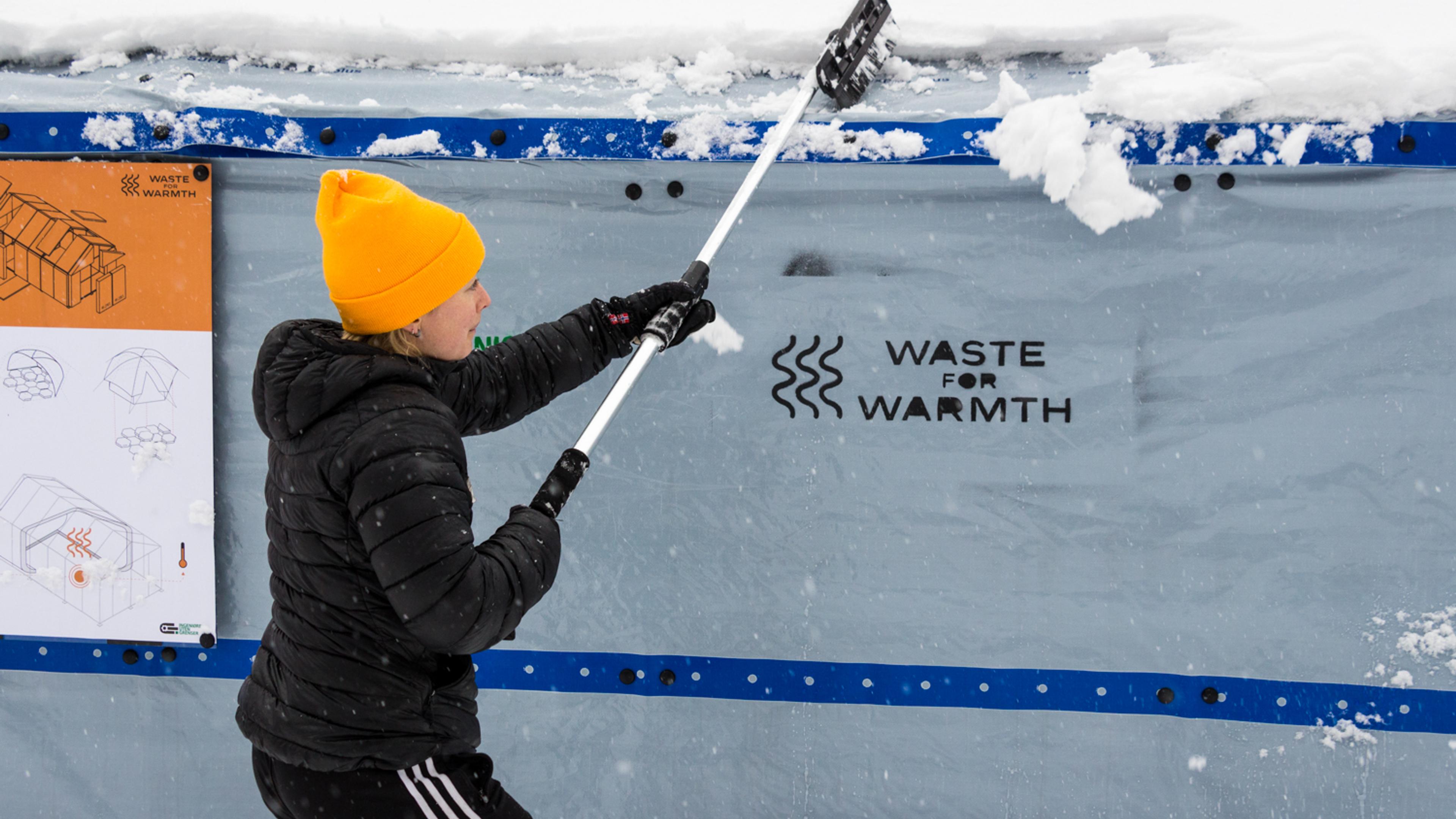Waste for Warmth: protecting refugees against cold winters
 © Silvia De Georgi
© Silvia De GeorgiWhat is the humanitarian challenge?
Millions of displaced people are living in temporary shelters across the Middle East. More than 3.6 million Syrian refugees are currently living in Turkey alone. Among the many challenges they face, is a lack of protection against harsh winters. For those living in camps, existing shelter heating solutions are costly and energy intensive and options to insulate tents are expensive. Current approaches to winterisation assistance rely on distribution of blankets, stoves and fuel, and insulation and weather proofing of shelters. The distribution of heaters and stoves increases reliance on fuel, which increases the living costs of refugee families and negatively impacts the environment.
What is innovative about this project?
Engineers Without Borders Norway together with its partners Field Ready, Polyfloss Factory and IFRC Shelter Research Unit have developed a new approach to shelter winterisation by making tent insulation in the field. The insulation is created from recycled plastic by utilizing a technology called Polyfloss. Polyfloss is a mass of thin fibres of plastic that resembles candy-floss in appearance.
The Polyfloss fibres can be packed, shaped and formed and it traps air between its fibres, giving it insulating properties. Polyfloss machines can be deployed on-site where the insulation is needed. Plastic can be collected from the local area either informally or formally in return for funds.
The objective of this scaling project is to ensure tangible impact is made in the field towards reduction of plastic waste, increased economic activity among displaced people and ensuring access to winterised shelters to protect against the cold. The project will explore sustainable operations for manufacturing, and thus attracting finance and scaling directly for the project outcomes.
What are the expected outcomes?
Through testing of three different paths to scale, it is expected that the project will deliver insulation for 1000 shelters so that 1000 families are kept warm through the winter. This will count for approximately € 100.000 in direct energy savings for displaced families in reduced heating fuel costs.
Who are the proejct partners?
Waste for warmth is a partnership between Engineers Without Borders Norway, Field Ready and The Polyfloss Factory.